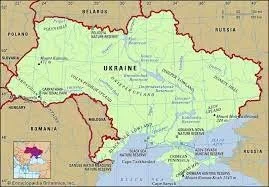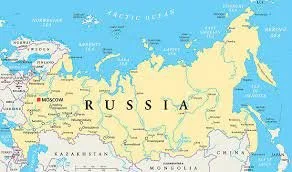“You, take Russia!”
A priest friend of mine recently passed away who used to work intimately with the Missionaries of Charity. He knew Mother Teresa well and was able to offer retreats for her and the sisters all over the globe.
He once told me a story of accompanying Mother as she was visiting a hospital. They walked into one room where, if I remember correctly, there were two brothers, both of whom were suffering mightily. She stood at the foot of their beds and, smiling as only she could, looked at the first one and said, “You, take Russia!” Turning to his brother, she said, “And you, take China!”
That story has been on my mind the past week. For two reasons. First, because of the horrific situation playing out at this very moment in Ukraine. Second, because of the seemingly countless number of people I know who are suffering in body, mind and spirit feeling and fearing that their pain is in vain. What Mother knew well was those who are suffering, in whatever way, are spiritual heavy artillery.
Perhaps no verse in the Bible is as difficult to understand as Col 1:24. St. Paul says, “I fill up in my flesh what is lacking in the sufferings of Christ for the sake of His Body, which is the Church.” Excuse me? What in the world is “lacking” in the sufferings of Christ? Does Paul mean to convey that what Jesus did in going to war to rescue us was close but not quite enough to accomplish all that He came to do? Hardly. The only thing “lacking” in Jesus’ suffering is our participation in it. This is immensely important since it's not a question of if we’re going to suffer in this life, only how and when.
The culture around us considers suffering of absolutely no value, almost a fate worse than death. Hence, the movement over the past decades to enthusiastically promote euthanasia. It is an all too common part of parish life, whether as a priest, deacon or volunteer, to spend much of our time visiting the sick and the dying, be they in hospitals, nursing homes, hospice, prison, or their own homes. Men and women in those places are more often than not inclined to think that what they are going through has no point and is in vain. The disciple of Jesus knows a different story.
If you and I had been there on that Friday we call “Good” and had seen Jesus nailed to that cross, we would certainly have said to each other, “What a waste.” We would have thought that nothing good could or would come from that.
And we would have been wrong.
Frank Sheed, the great English author of the 20th century, once wrote that the most active moment in Jesus’ life was when He was hanging on the cross. As a disciple of Jesus he understood that the Lord rescued us precisely by His loving suffering on the cross, whereby He revealed to us the Father’s love, made atonement for our sins, and went to war to defeat the powers of Sin, Death and Satan. As it was with Jesus on the cross, so it is with us when we suffer. It is not a waste, or in vain, or at least it need not be. I don’t at all mean to imply that suffering is romantic. It’s not. That’s why we call it suffering. Still, when we suffer we can use it. And God can do great things through it.
It was once common to hear someone encourage another who was suffering to “offer it up.” I always recoiled at that expression, perhaps because I found it so passive (though Pope Benedict XVI favorably used it in his Encyclical Spe Salvi). Calling to mind Paul’s to the Christians in Colossae, I have found it helpful to remind myself and others to unite what we’re going through, whether it’s a migraine, chronic back pain, chemotherapy, depression, or any other way that suffering comes to us, to the cross of Jesus, trusting that one day we will understand how God used it. Nothing you and I are enduring right now, no matter how painful it may be, need be in vain!
Whenever I visit someone who is suffering, after praying and talking with them, I remind them what Jesus was doing on the cross. I then ask them if they will unite what they’re going through to that same cross for the sake of someone specific: a marriage in trouble, a young person away from the Church, a world leader, or maybe someone struggling with an addiction. Sometimes, I’ll write the name of the person to suffer for on the board in the hospital room. I suggest to them that though I know they’re tempted to think their pain is meaningless they are, in fact, “the Armed Forces” in the Church and no one’s prayers are more powerful than theirs for the simple reason that when we suffer we are most inclined to be selfish. After all, I hurt! But when we actively unite our pain to the cross for another, it’s the most powerful display of love possible. And over and over again, the transformation that takes place in the suffering person’s demeanor is amazing. Though the pain doesn’t leave, suddenly they have a purpose and what they’re going through isn’t useless anymore. And they trust that one day, even if it’s not until the Lord returns, they will see how He used their suffering and prayer and the great good that came from it.
Somebody in pain right now, please, whoever and wherever you are, take Russia. Take Ukraine.


